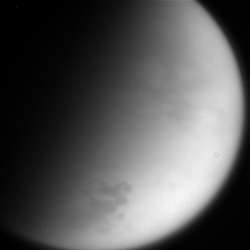NASA’s Cassini spacecraft burns up over Saturn ending 20-year-long journey
NASA's $4 billion Cassini spacecraft has burned up in the skies over Saturn as planned, ending a 20-year mission.

NASA's Cassini spacecraft today ended its 20-year-long epic journey with a fiery plunge into the Saturn's crushing atmosphere, while beaming back never-before-seen images of the ringed planet and its moons.
Operators deliberately made Cassini, the first spacecraft to orbit Saturn, dive into the gas giant to ensure that the ringed planet's moons - in particular Enceladus, with its subsurface ocean and signs of hydrothermal activity -remain pristine for future exploration.
"Our spacecraft has entered Saturn's atmosphere, and we have received its final transmission," NASA said in a tweet. "Every time we see Saturn in the night sky, we'll remember. We'll smile. And we'll want to go back," the US space agency said.
The spacecraft's fateful dive was the final beat in the USD 4 billion mission's Grand Finale, 22 weekly dives, which
began in late April, through the gap between Saturn and its rings. No spacecraft has ever ventured so close to the planet before, NASA said.
The Cassini mission gave scientists an unprecedented view of the sixth planet from the Sun. The probe discovered seasonal changes on Saturn, a hexagon-shaped pattern on the north pole and the moon Titan's resemblance to a primordial Earth.
Scientists found deep, liquid-filled canyons on Saturn's moon Titan for the first time. They also found a global ocean on the moon Enceladus, with ice plumes spouting from its surface.
A joint endeavour of NASA, the European Space Agency (ESA) and the Italian space agency, Agenzia Spaziale Italiana (ASI), Cassini was a sophisticated robotic spacecraft launched in October 1997 to study the ringed planet and its system in detail.